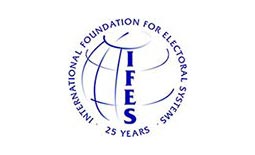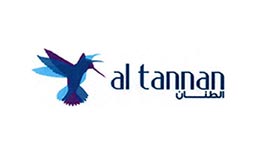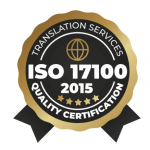Remote Simultaneous Interpretation (RSI) may be used at any event in which there are people who belong to different cultures and speak different languages. This interpreting modality will allow you to successfully lift any linguistic and cultural barrier by conveying your message in any language, anytime and anywhere.
Remote simultaneous interpretation is suitable for events of any size, ranging from large conferences, seminars with big audiences and press conferences with many journalists to small and medium-sized events such as online meetings with international partners or guided tours.
With RSI there is no limit to the number of foreign languages that can be used during an event. Therefore, remote simultaneous interpretation is to be considered suitable for events in any language. In particular, rare languages won’t a problem anymore since event organizers will have a very wide choice of interpreters, with no geographical constraint.
Moreover, remote simultaneous interpretation may be used in any place, also difficult-to-reach locations such as islands and mountains or small locations where there is not enough space for interpretation booths. This kind of simultaneous interpretation allows interpreters to work remotely, so interpretation equipment (soundproof booths and headsets) is not needed. However, we will provide it if the client asks us to.
As far as duration is concerned, it should be noted that remote simultaneous interpretation is ideal for events of any length, ranging from a few hours to several days. RSI may also be used for events organized or modified at short notice, since there is no need for arranging travelling and/or accommodation for on-site interpreters.
To sum up, the main event types in which remote simultaneous interpretation may be used are:
- conferences: the target audience listen to the simultaneous interpretation with their own electronic devices (smartphones, laptops or tablets) or traditional headsets;
- seminars and workshops: participants may have a poor command of the speaker’s language, and only interpreting into their mother tongue will allow them to fully understand the subject discussed;
- board and executive committee meetings: participants may not share a common language or feel uncomfortable speaking a foreign language, so remote simultaneous interpretation may be necessary to allow them to communicate;
- panel discussions, in which usually many foreign languages are spoken;
- press conferences, which are usually organized at short notice;
- small meetings: in these occasions speakers speak into a smartphone or a laptop, whereas at large events they can use the on-site audio interpretation system;
- guided tours: both the speaker and listeners use portable translation systems since they have to move around.
Our Testimonials
We are proud to be a stable company with a solid reputation and a partner for major companies in the Middle East and worldwide.
The Language Professionals provided the International Foundation for Electoral Systems – Afghanistan Project with all services and equipment in an expedited fashion.
Anya KozlovaSenior Program Officier 
Matteo and his team at Langpros live up to their brand name – they are experts in any language and extremely professional in their approach.
Sajith AnsarCeo 
We would not hesitate to recommend Langpros to any other national and international organizations and Government bodies requiring translation and interpreting services.
Dr Giampaolo BrunoDirector 
Matteo and Langpros have given us amazing service. They translated two fairy tales that were used in our Virtual Reality activation in Kidzania, running for the full month of March.
Nadya KolevaProject Manager 
I would like to express my appreciation to you & your Team for providing us with translations to our Manuals in many different languages and allowing us to grow in new market.
Towfigh TamimiCEO 
We really appreciate your hard word & dedication for providing excellent services & maintaining high standards. The results of your services made us really glad.
Faisal KhanAssistant Vice President 




